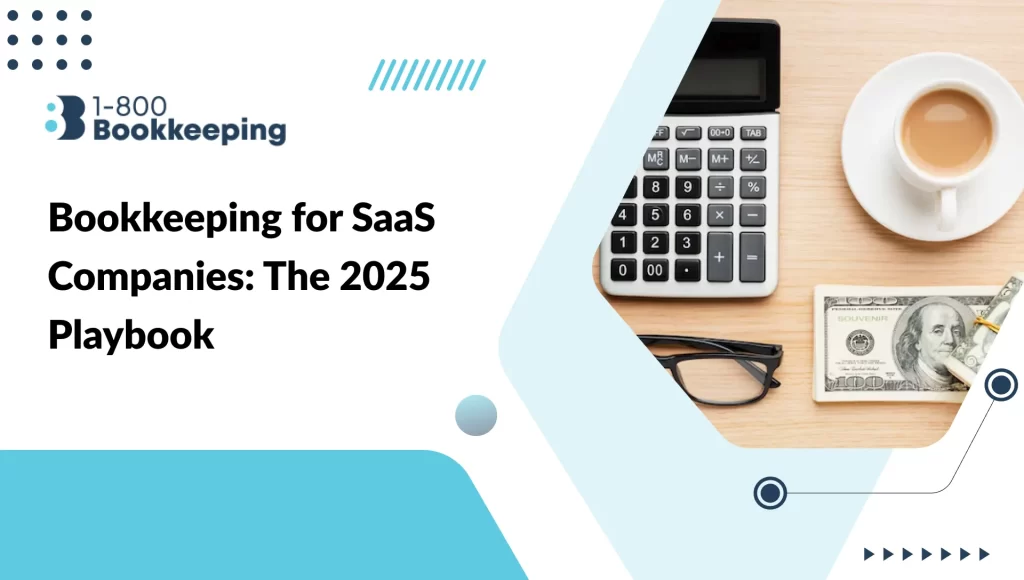Payroll management is critical for any business, especially small business owners who often juggle multiple roles and responsibilities. It involves administering an employee’s financial records, including wages, bonuses, deductions, and net pay. Effective payroll management ensures that employees are paid accurately and on time, fostering trust and satisfaction while ensuring compliance with legal regulations.
Small businesses must prioritize payroll management as it directly affects employee morale and retention. Timely and accurate payroll processing demonstrates professionalism and reliability, enhancing the workplace environment. Additionally, proper payroll management helps maintain compliance with federal, state, and local tax laws, thereby avoiding costly penalties and legal issues.
Key Components of Payroll Management
Understanding the key components of payroll management is essential for efficient operation:
- Employee Information: It is crucial to maintain accurate records of employee details such as names, addresses, Social Security numbers, and employment status.
- Wages: This includes hourly rates, salaries, overtime, commissions, and bonuses. Properly calculating wages ensures employees are compensated correctly.
- Deductions: Include mandated deductions for federal and state taxes, Social Security, and Medicare and voluntary deductions for health insurance premiums and retirement contributions.
- Benefits: Health insurance, retirement plans, paid time off, and other employee benefits must be accurately accounted for in the payroll process.
- Payroll Taxes: Both employer and employee contributions to Social Security, Medicare, unemployment insurance, and other relevant state-mandated taxes must be calculated and remitted correctly.
Each component is vital in ensuring the payroll process is comprehensive and accurate.
Partnering with 1-800 Bookkeeping for Efficient Payroll Management
At 1-800 Bookkeeping, we understand the critical role that accurate payroll management plays in business operations. Our services are designed to help businesses maintain high-quality payroll records, ensuring smooth and compliant payroll processes.
Expert Payroll Services
Our expert payroll services ensure that all employee payments are processed accurately and comprehensively. We help businesses maintain precise payroll records, providing a solid foundation for reliable and efficient payroll management.
Comprehensive Payroll Reporting
We offer comprehensive payroll reporting services, providing clear and detailed payroll statements. Our reporting services help businesses present a transparent and accurate picture of their payroll expenses, which is crucial for financial planning and compliance.
Tax Preparation and Compliance
Our tax preparation and compliance services help businesses maintain overall financial health, directly influencing their payroll management. Ensuring that all tax obligations are met accurately and on time, we help businesses avoid potential liabilities that can negatively impact their operations.
Our financial management and advisory services expertise has enabled numerous businesses to ensure precise payroll records and enhance operational efficiency. Partner with 1-800 Bookkeeping to confidently navigate payroll management and ensure your business’s continued success. Contact us today for a complimentary consultation.
The Payroll Process: Step-by-Step
Understanding the payroll process from start to finish is pivotal for effective payroll management. Here’s a step-by-step overview:
- Collect Employee Information: Gather vital employee data, including tax withholding information, benefit selections, and personal details. Accurate information is the foundation of proper payroll management.
- Calculate Wages: Determine gross pay based on hours worked or salaries, including overtime, commissions, and bonuses. This step ensures that employees are compensated accurately for their work.
- Apply Deductions: Deduct taxes, Social Security, Medicare, and voluntary deductions such as health insurance and retirement contributions. Properly applying deductions is crucial for compliance and accuracy.
- Process Payments: Disburse net pay to employees via checks, direct deposit, or other payment methods. Ensuring timely payment is key to maintaining employee satisfaction.
- Maintain Records: Keep detailed records of all payroll transactions, tax filings, and employee information for future reference and compliance. Accurate record-keeping is essential for legal compliance and future audits.
Each step requires meticulous attention to detail to avoid errors and ensure compliance with legal requirements.
Understanding Payroll Taxes and Deductions
Payroll taxes and deductions are integral to the payroll process and come in various forms:
- Federal Taxes: Include federal income tax, Social Security tax, and Medicare tax. Employers must withhold these taxes from employee wages and remit them to the IRS.
- State Taxes: Depending on the state, there might be state income tax, state unemployment tax, or other region-specific taxes employers must withhold and remit.
- Social Security and Medicare: Both employers and employees contribute to these federal programs, which provide retirement and healthcare benefits. Employers must ensure that these contributions are accurately calculated and submitted.
- Voluntary Deductions: Deductions such as health insurance premiums, retirement plan contributions, and charitable donations fall under this category. Employers must ensure that these deductions are accurately applied based on employee selections.
Employers must stay updated with changing tax laws to ensure compliance and avoid penalties.
Payroll Management Systems and Software
In the digital age, payroll management systems and software have revolutionized how businesses handle payroll operations. The right payroll software can automate many tasks, reducing the chances of human error and saving valuable time.
Features to Look for in Payroll Software
- User-friendly Interface: Easy navigation and operation are crucial for efficient use.
- Automation: Automates calculations, tax filings, and payment processing, saving time and reducing errors.
- Compliance: Ensures adherence to federal and state tax laws, helping businesses avoid legal issues.
- Customization: Adapts to the business’s specific needs, such as different pay schedules and deduction types.
- Integration: Seamlessly integrates with other business tools like accounting software, streamlining overall operations.
Benefits of Using Payroll Software
- Reduces human error, leading to more accurate payroll processing.
- It saves time and effort, allowing business owners to focus on other critical tasks.
- Ensures compliance with tax laws, reducing the risk of penalties.
- Provides detailed reporting and analytics, aiding in better decision-making and financial planning.
These features collectively contribute to more efficient and effective payroll management.
Compliance and Legal Considerations
Compliance with payroll laws and regulations is non-negotiable for any business. Non-compliance can result in severe penalties, financial losses, and reputational damage.
Key legal considerations include:
- The Fair Labor Standards Act (FLSA) governs minimum wage, overtime pay, and child labor standards. Businesses must ensure that their payroll practices comply with these standards.
- Wage and Hour Laws: Vary by state and government issues such as minimum wage, overtime, and break periods. Employers must be aware of and comply with these laws to avoid penalties.
- Employee Classification: Properly classifying employees as exempt or non-exempt based on their job roles and responsibilities is crucial for compliance.
- Record-Keeping Requirements: Accurate and detailed records of wages, hours worked, and other payroll-related documents are essential for legal compliance and future audits.
Staying compliant requires continuous education and staying updated with ever-changing laws and regulations.
Common Payroll Challenges and Solutions
Businesses, especially small ones, often face several payroll challenges. Here are some common issues and their solutions:
Managing Payroll Errors
- Challenge: Errors in payroll calculations can lead to overpayments, underpayments, and employee dissatisfaction.
- Solution: Implement thorough audit processes and use reliable payroll software to minimize errors. Regular audits can help identify and rectify discrepancies before they become significant issues.
Staying Updated with Tax Laws
- Challenge: Tax laws are subject to frequent changes, making compliance challenging.
- Solution: Employ a knowledgeable payroll professional or use payroll software that updates regularly to reflect current tax laws. Staying informed about tax law changes is crucial for maintaining compliance.
Handling Employee Disputes
- Challenge: Disputes over payroll inaccuracies can affect employee morale.
- Solution: Maintain transparent communication channels and resolve disputes promptly and fairly. Ensuring employees understand their payroll and can easily address concerns can prevent disputes and improve morale.
Addressing these challenges proactively can vastly improve payroll management efficiency.
The Role of Outsourcing in Payroll Management
Many small businesses opt to outsource payroll management to third-party providers. Outsourcing can offer several benefits:
Cost-Effectiveness
- Benefit: Outsourcing reduces the need for in-house payroll staff and systems. It can be more cost-effective than maintaining a dedicated payroll team.
- Consideration: Assess the costs of outsourcing against maintaining an in-house team. Ensure that the outsourcing costs align with your budget and business needs.
Time Savings
- Benefit: Outsourcing payroll frees business owners and staff time to focus on core business activities. It allows you to concentrate on growing your business.
- Consideration: Ensure the provider’s processes align with your business needs. Choosing a provider who understands your business and can meet your specific requirements is essential.
Expertise
- Benefit: Access to specialized knowledge in payroll management and compliance. Professional payroll providers are well-versed in the latest regulations and best practices.
- Consideration: Choose a provider with a proven track record and good reputation. Research potential providers thoroughly to ensure they have the expertise and reliability you need.
Selecting the Right Payroll Service Provider
- Evaluate the provider’s experience and expertise. Look for providers with a solid track record in payroll management.
- Check for comprehensive service offerings. Ensure the provider can handle all aspects of your payroll needs.
- Read customer reviews and testimonials. Reviews can provide insights into the provider’s reliability and customer service.
- Consider the provider’s ability to integrate with your existing systems. Seamless integration can streamline your operations and improve efficiency.
Outsourcing payroll can streamline operations, but selecting a provider that aligns with your business goals and requirements is essential.
Best Practices for Effective Payroll Management
Adopting best practices can significantly enhance the efficiency of your payroll management. Here are some strategies:
Regular Audits
Conduct regular payroll audits to identify and rectify discrepancies. Regular audits can ensure the accuracy of your payroll and compliance with regulations.
Using Reliable Software
Invest in robust payroll software that automates tasks and ensures compliance. Reliable software can save time, reduce errors, and help you comply with tax laws.
Staying Compliant
Stay updated with payroll laws and regulations to avoid penalties. Review changes in laws regularly and adjust your payroll practices accordingly.
Clear Communication with Employees
Maintain transparent communication regarding payroll policies, deductions, and dispute resolution processes. Clear communication can help prevent misunderstandings and disputes.
Documentation
Keep detailed records of all payroll transactions, tax filings, and employee-related documents. Accurate record-keeping is essential for compliance and future audits.
Continuous Learning
Invest in payroll staff training to keep them updated with the latest practices and compliance requirements. Ongoing education can help your team stay informed and effective.
Implementing these best practices can lead to more accurate and efficient payroll management.
Conclusion
Payroll management is a complex yet essential aspect of running a small business. It involves various facets, from calculating wages and deductions to ensuring compliance with tax laws. Effective payroll management ensures employee satisfaction and helps maintain compliance, avoid penalties, and build a reputable business.
Understanding the importance of payroll management, its key components, and the tools available can help small business owners manage this critical function more effectively. Whether opting for payroll software or outsourcing to a provider like 1-800 Bookkeeping, making informed decisions can lead to smoother operations and a more productive work environment.
By prioritizing accurate payroll processes, staying updated with legal requirements, and leveraging the right tools and services, small business owners can ensure their payroll management systems contribute to their overall success.
Feeling Overwhelmed by Bookkeeping? We Can Help.
Running a business is demanding, and keeping track of your finances can be a never-ending chore. Many business owners need help with the complexities of bookkeeping, which can leave them frustrated and behind.
1-800 Bookkeeping offers expert services to streamline your financial processes and empower you to make informed decisions.
Our team of seasoned professionals understands the unique challenges businesses of all sizes face. We can help you:
- Free Up Valuable Time: Offload your bookkeeping tasks to our dedicated professionals.
- Gain Peace of Mind: Ensure your financial records are accurate and up-to-date.
- Make Smarter Decisions: Get actionable insights into your business performance through clear and concise reports.
- Feel Confident: Make informed financial decisions based on reliable data.
Don’t let bookkeeping hold you back from achieving your business goals. Contact 1-800 Bookkeeping today for affordable bookkeeping solutions.
FAQs:
1. What is payroll management, and why is it important?
Payroll management involves administering employees’ financial records, including wages, bonuses, and deductions. It is crucial for ensuring accurate and timely employee payments, compliance with tax laws, and maintaining employee trust and satisfaction.
2. What are the key components of payroll management?
The key components include employee information, wages, deductions, benefits, and payroll taxes. Each component is essential for accurate payroll processing and compliance with legal requirements.
3. What are the benefits of using payroll software?
Payroll software reduces human error, saves time, ensures compliance with tax laws, and provides detailed reporting and analytics. It automates many tasks, making payroll management more efficient.
4. Why should small businesses consider outsourcing payroll management?
Outsourcing payroll can be cost-effective, save time, and provide access to specialized expertise. It allows business owners to focus on core activities while ensuring accurate and compliant payroll processing.
5. What are some best practices for effective payroll management?
Best practices include conducting regular audits, using reliable payroll software, staying compliant with laws, maintaining clear communication with employees, keeping detailed records, and investing in continuous learning for payroll staff.





